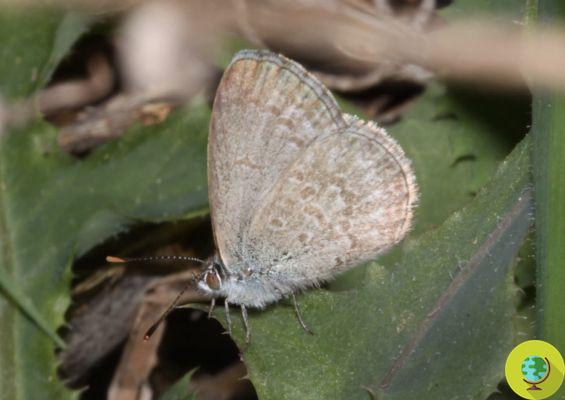
Mutant butterflies, which will bring with them the signs of one of the most terrifying nuclear disasters, that of Fukushima. Eighteen months after that terrible 18 March 11, the count of damage to the environment and its inhabitants is not over
He is about to end up run over, his mother saves him
Mutant butterflies, which will bring with them the signs of one of the most fearsome nuclear disasters, that of Fukushima. 18 months after that terrible March 11, 2011, the count of damage to the environment and its inhabitants are not over.
A team of researchers from Ryukyu University of Okinawa, Japan, found that the hereditary mutation of a butterfly species is a direct consequence of nuclear contamination occurred in the Fukushima power plant in the aftermath of the earthquake and tsunami.
After spending some time looking for any mutations undergone by the species present, the scientists noticed the butterfly Zizeeria maha, originally from Asia, presented disorders such as eye fatigue, reduction in the size of the wings and malformations in the antennae and legs.
In May 2011, the researchers began collecting butterflies near the central Fukushima, saving a total of 144 insects still in the form of lava, particularly important because butterflies are particularly sensitive to changes in the ecosystem. And while insects appeared 'normal' in the early stages of development, significant changes were noted shortly thereafter in subsequent generations, especially in the wings, which changed in color, shape and size.
Initially, at least 12 butterflies out of 100 they had much smaller wings. However, in the second generation this percentage increased to 18,3% while in 33,5% of cases all alterations were found. From bad to worse. This means not only that this butterfly species was irremediably damaged but that these mutations are hereditary, and have already been passed down to offspring.
And as for bad news, it's not over yet. According to Joji Otaki, scientist specialized in the study of butterflies, this species is considered one of the most resistant to radiation nuclear. Terrible omen ...
The study was published in Nature.
Francesca Mancuso


























